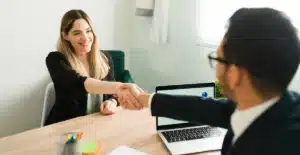Yes, it’s true — 50% of Americans are on prescription drugs, and are using them at this very moment.
However, it’s likely not what you think. The drugs that half of Americans are on are not limited to prescription painkillers, stimulants and tranquilizers. While a large majority of people are on these types of drugs, there are many other less dangerous drugs that are pumping through the blood of the American people.
In a report developed by the Centers for Disease Control entitled “Health, United States 2013”, a major spotlight is put upon prescription drug use (and abuse). Some of the findings of the report showed the following:
- Prescription drugs rake in the big bucks — $263 billion big bucks to be exact. In 2011, Americans spent their hard earned cash on prescription drugs, and according to CNN, that spending added up to almost 10% of all national health expenditures.
- The call it “Big Pharma” for a reason – the drugs don’t sell themselves! Pharmaceutical companies are working vigorously behind the scenes to boost sales of the drugs they promote – sometimes to the public’s detriment.
- Depression is at an all-time high in Americans, with more than 10% of the country struggling with this psychological disorder. Depression in itself can be a leading cause of prescription drug abuse, as well as a catalyst for additional psychological issues that also lead to abuse.
At this current moment, 50% of Americans are taking at least one prescription drug a day. Another 10% are taking four or more a day. While many of these people consist of elderly individuals that are prescribed to take a number of pills ranging from painkillers to blood pressure medicine, there are others who are simply abusing the prescriptions that are coming their way.
With the prescription drug epidemic on the rise (and quickly morphing into a heroin epidemic) it should come as no surprise to hear that the majority of Americans are using prescription drugs. However, hearing that prescription drug abuse has increased by 300% between 1999 and 2010, it is almost impossible not to experience some sense of shock.
So what can you do about this? If you are one of the many people with one or more prescription drugs in your home, make sure you know what you are taking. It is important to understand how they interact with other substances, what effects they can have if misused, and how likely they can produce addictive tendencies. It is also critical that you closely monitor your prescription drugs so that other individuals that live with you do not abuse them when you are not looking.
Related Articles
https://www.cdc.gov/nchs/hus.htm
Author
-

President, CEO & Founder at Northbound Treatment Network
Paul Alexander is the CEO, President & Founder of Northbound Treatment Network in Newport Beach, California. He believes wholeheartedly in transformational leadership, organizational health and effective, fully integrated substance use disorder and mental health treatment. With over 27 years of experience in behavioral healthcare, Paul has extensive knowledge of “in vivo” treatment modalities, clinical development, operations, strategy, marketing and financial planning. He has been widely recognized for his development of collegiate-based residential treatment programs for students in recovery and authored a research study at The University of California confirming this modality’s effectiveness.
Paul’s comprehensive professional experience, willingness to innovate, and emphasis on organizational health are vital factors in Northbound’s continued success. Paul received his Certified Addiction Treatment Specialist training at Saddleback College in Mission Viejo, CA, and was awarded Outstanding Alumni Service Award in 2002. Paul holds a Bachelor of Arts degree in Criminology, Law and Society, Summa Cum Laude, from University of California, Irvine, and a Juris Doctorate degree from Loyola Law School of Los Angeles. Paul currently serves on The National Association of Addiction Treatment Providers (NAATP) board. In addition, he serves on The Family Recovery Foundation board and The CarePossible board in Orange County; both organizations are committed to raising funds for family recovery and treatment for former military personnel. Paul is in recovery himself and lives in Orange County with his wife Silvana and his two young sons, Noah and Dean.







